Certainly One Day (1975)
Gênero : Drama
Runtime : 1H 18M
Director : Bilge Olgaç
Sinopse
Based on Yılmaz Güney's script and filmed in semi-documentary style, the movie provides a fresh perspective on the history of labor issues in 1970s.
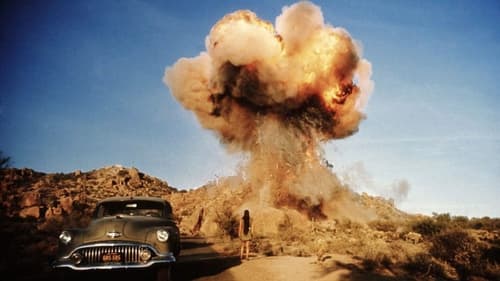
Um retrato épico do final dos anos sessenta dos EUA, visto através da representação de dois de seus filhos: a estudante de antropologia Daria (que está ajudando um promotor de imóveis a construir uma aldeia no deserto de Los Angeles) e o estudante Mark que abandonou a faculdade (que é procurado pelas autoridades por supostamente matar um Policial durante uma revolta estudantil). Os dois começam um romance desenfreado, fazendo amor em qualquer terreno empoeirado. (e 16 - Estimado 16 Anos)

Burt Farlander e Verona De Tessant são um casal apaixonado, de Denver, vivendo a experiência de esperar o primeiro filho. Aos seis meses da gravidez, eles säo surpreendidos por uma má notícia: os pais de Burt, estão saindo do país para passar dois anos na Bélgica. Como os pais de Verona já são falecidos, o casal se vê frustrado na expectativa de compartilhar com a família as habilidades paternas e garantir um ambiente familiar ao bebê. Eles decidem viajar pelos Estados Unidos e Canadá para rever outros parentes e velhos amigos e encontrar o lugar perfeito para começar uma família. Burt e Verona se deparam com histórias emocionantes até fazer uma grande descoberta: o verdadeiro significado da palavra "lar".
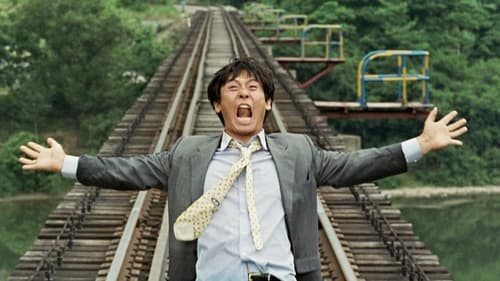
In the spring of 1999, a group of old friends gather to celebrate their 20 year reunion. Among the group is Yeong-ho, a cold, unhappy man, whose demeanor puts a damper on the festivities. The seriousness of Yeong-ho's depression becomes apparent when he climbs a railroad bridge and looks like he might jump. At this crucial moment, memories of seven crucial episodes from Yeong-ho's past flood his mind.

A reckless student contemplates terrorism in a prescient film that confirmed Shinoda as a fearless member of Shochiku’s iconoclastic New Wave. At the height of student protests, Shimojo (Shinichiro Mikami) takes his aggressions to another level, beset by seemingly insoluble feelings of alienation.

Um jornalista está a preparar uma reportagem sobre juventude extremista e apaixona-se por um jovem radical que teme ser morto por seus companheiros quando ele é incapaz de cometer um assassinato político.

A state topper from a lower caste goes missing after an upper caste cop picks him up for questioning. What has happened to him?

As Mexico prepares to host the 1968 Olympics, students and civilians are uniting on the streets to protest the authoritarian government. Tensions are running high and the eyes of the world are on Mexico and President Gustavo Diaz Ordaz. Ana Maria, a student photographer and daughter of a high-ranking official, finds herself embroiled in the movement and is swept off her feet by Félix, a working-class architecture student. This film remembers the events that led to one of the darkest chapters in Mexico’s recent history: the massacre at Tlatelolco, 10 days before the opening of the Olympic Games.

The film speaks of student demonstrations in Belgrade, 1969 and of the critical quality, enthusiasm and discipline of this form of protest. It was the most powerful public criticism of "red bourgeoisie" - members of communist apparatus, who suppressed creativity and affirmation of new generations throughout Eastern block.

In this story set in near future, a group of young rebels, hippies and 1968 protesters want to cede and make an independent Island from the Mainland. A journalist who came to the Island to make a report about political summit that takes place there gets involved in the clash between young rebels and establishment.

Andrea Pomeraro, a history teacher, has an affair with a student who then blackmails him. Attempting to retrieve the incriminating photos, he accidentally becomes the head of the student revolt and ends up in jail.

In the summer of revolt 1968, student Leobardo López Aretche captured the protests in Mexico City, and the state’s brutal response, up close – and like many of his subjects and fellow comrades, would pay a high price for his audacity. Fifty years later, his movie is no longer a secret.

The Wages of Resistance is a feature-length documentary film that portrays an "extended span of time" of the protests against building Narita International Airport which have continued from the 1960's to today through documenting monologues of those whose lives were twisted by the movement.
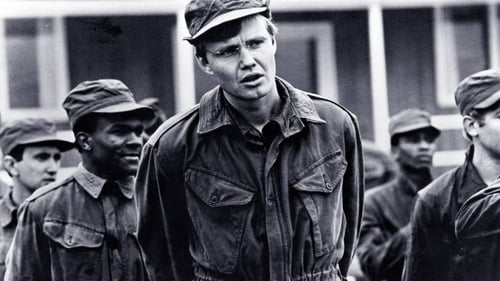
"A", a member of a student protest organization, becomes disenchanted by his group's inability to effect real change. Emboldened to pursue more radical methods by the older, experienced leftist organizer Despard, "A" unwittingly becomes party to a labor strike that turns violent. Ultimately held responsible by the authorities for the fracas, "A" allies himself with terrorist Leonard, who intends to avenge those jailed in the protest.

Numa noite de reveillon cada um deles está num lugar diferente. Milner é um corredor, Toad luta no Vietnã, Debbie é uma hippie em San Francisco e o casamento de Steve e Laurie está em crise. O sonho dourado dos anos 60 estaria se acabando?

Após saber que o Estado pretende privatizar o colégio em que estudam, um grupo de estudantes decide entrar em greve e ocupá-lo, enfrentando a polícia. Entre eles está Silvio (Silvio Muccino), que está mais interessado em garotas do que nos comitês de política estudantil. Apesar das confusões decorrentes da ocupação da escola, e também da interferência de seus pais em sua vida, Silvio se esforça para encontrar o grande amor de sua vida.
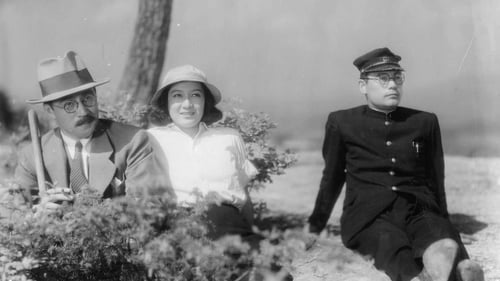
Yukie, a filha bem-educada de um professor universitário, fica chocada quando o seu pai é dispensado do seu cargo pelos seus ensinamentos políticos e ainda mais quando o seu amante, um aluno do seu pai, é preso e executado como espião. Ela decide deixar Kyoto para viver com os pais do rapaz na aldeia camponesa. Mas a vida ainda tem muitas lições para ela... (e 12 - Estimado 12 Anos)
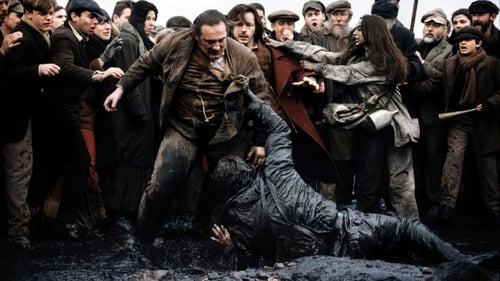
Baseado no romance homônimo de Émile Zola, o filme aborda os movimentos grevistas de um grupo de mineiros no norte da França do século XIX contra a exploração de que são vítimas. Entretanto, ao se levantarem contra o sistema, passam ser alvos da repressão das autoridades.





















